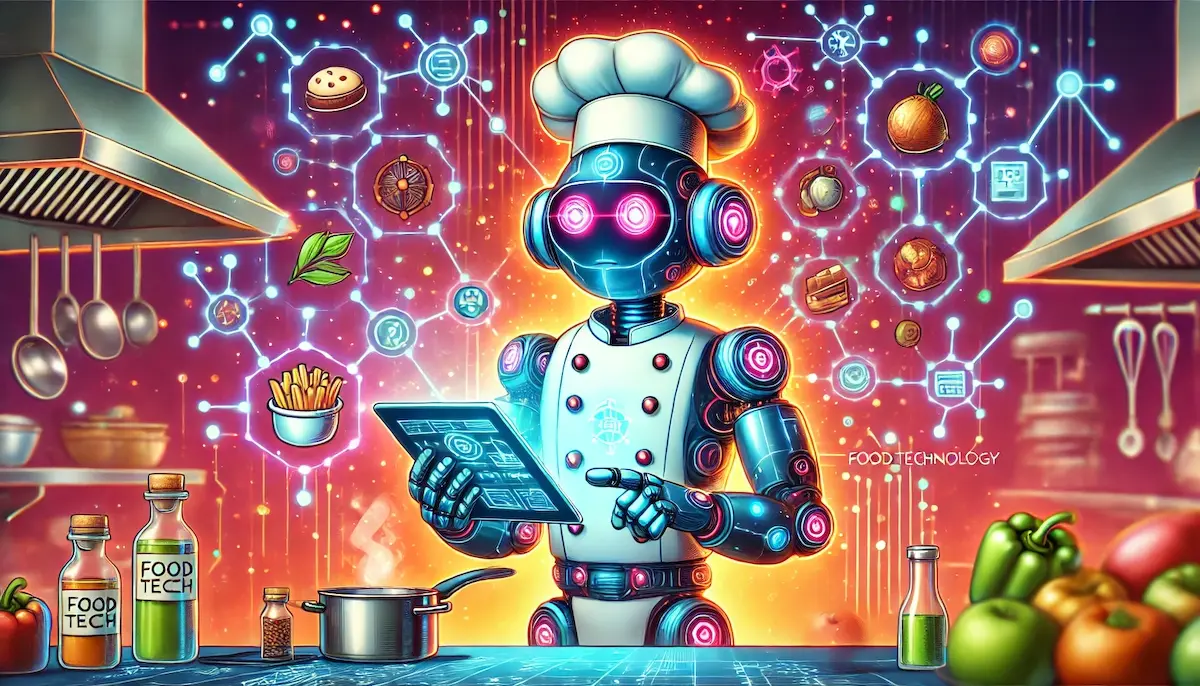FoodTech, short for food technology, is an innovative sector that merges technology with food production, distribution, and consumption. By integrating advanced tools and systems into the food industry, FoodTech aims to improve the efficiency, sustainability, and quality of food production and delivery. This article explores what FoodTech is, how it works, and its benefits and applications.
What Is FoodTech?
FoodTech encompasses a wide range of technologies and solutions designed to enhance various aspects of the food industry. This includes everything from agricultural innovations and food processing to supply chain management and personalized nutrition. The goal of FoodTech is to address the challenges of food production, ensure food security, and create sustainable food systems.
How Does FoodTech Work?
FoodTech works by applying technological advancements to different stages of the food supply chain. Here are some key technologies and their applications in FoodTech:
Precision Agriculture
Precision agriculture uses data and technology to optimize crop yields and resource usage. This involves:
- Drones and Satellites: Monitor crop health and soil conditions to provide real-time data for better decision-making.
- IoT Sensors: Measure soil moisture, temperature, and nutrient levels to optimize irrigation and fertilization.
- GPS Technology: Guides machinery to ensure precise planting, spraying, and harvesting.
Food Processing and Packaging
Innovations in food processing and packaging improve food safety, extend shelf life, and reduce waste. Examples include:
- High-Pressure Processing (HPP): Uses high pressure to eliminate pathogens without affecting the nutritional quality of food.
- Active Packaging: Incorporates substances that absorb oxygen or release antimicrobial agents to keep food fresh.
- Smart Packaging: Uses sensors to monitor the condition of food and provide information on freshness and safety.
Alternative Proteins
Alternative proteins are sustainable sources of protein that reduce reliance on traditional livestock. This includes:
- Plant-Based Proteins: Derived from plants such as soy, pea, and wheat to create meat alternatives.
- Cultured Meat: Produced by culturing animal cells in a lab to create meat without raising and slaughtering animals.
- Insect Protein: Uses insects as a high-protein, low-impact food source.
Supply Chain Management
FoodTech enhances supply chain efficiency and transparency through:
- Blockchain: Provides a secure and transparent way to track the journey of food from farm to table.
- AI and Machine Learning: Analyze data to predict demand, optimize inventory, and reduce food waste.
- Cold Chain Technology: Ensures perishable items are stored and transported at the correct temperatures.
Personalized Nutrition
Personalized nutrition uses technology to tailor dietary recommendations to individual needs. This involves:
- Nutrigenomics: Studies the relationship between genes and nutrition to provide personalized dietary advice.
- Wearable Devices: Track dietary intake and health metrics to give personalized nutrition feedback.
- AI-Powered Apps: Analyze dietary habits and health data to offer customized meal plans and recommendations.
Food Delivery and E-Commerce
FoodTech transforms food delivery and e-commerce by leveraging technology to enhance convenience and efficiency. This includes:
- Online Ordering Platforms: Enable consumers to order groceries and meals online.
- Delivery Drones and Robots: Provide fast and efficient delivery of food orders.
- Dark Kitchens: Optimize food production for delivery-only services.
Benefits of FoodTech
Enhanced Food Security
FoodTech solutions improve agricultural productivity and food distribution, ensuring a stable and secure food supply.
Sustainability
By optimizing resource use and reducing waste, FoodTech promotes sustainable food systems that minimize environmental impact.
Improved Food Safety
Advanced processing and packaging technologies enhance food safety and reduce the risk of contamination.
Greater Efficiency
Automation and data-driven decision-making streamline food production and distribution, reducing costs and increasing efficiency.
Better Nutrition
Personalized nutrition and alternative proteins provide healthier and more diverse food options for consumers.
Convenience
Technological advancements in food delivery and e-commerce make it easier for consumers to access a wide range of food products quickly and conveniently.
Applications of FoodTech
Smart Farming
Smart farming technologies help farmers optimize crop yields, reduce resource use, and improve sustainability. This includes precision agriculture tools, automated machinery, and data analytics.
Food Safety and Quality Control
FoodTech innovations ensure the safety and quality of food products through advanced testing, processing, and packaging techniques. This includes pathogen detection systems, smart packaging, and HPP.
Sustainable Food Production
FoodTech promotes sustainable food production through alternative proteins, vertical farming, and aquaponics. These methods reduce the environmental footprint of food production.
Efficient Food Distribution
Advanced logistics and supply chain technologies enhance the efficiency and transparency of food distribution. This includes blockchain for traceability, AI for demand forecasting, and cold chain technology for perishable items.
Personalized Nutrition Services
FoodTech enables personalized nutrition services that cater to individual dietary needs and preferences. This includes AI-powered meal planning apps, nutrigenomics-based recommendations, and wearable devices for health tracking.
Innovative Food Products
FoodTech drives the creation of innovative food products that meet the evolving tastes and dietary preferences of consumers. This includes plant-based meats, cultured meat, and functional foods with added health benefits.
Conclusion
FoodTech is revolutionizing the food industry by integrating technology into various aspects of food production, processing, distribution, and consumption. From precision agriculture and alternative proteins to personalized nutrition and efficient supply chains, FoodTech solutions are enhancing sustainability, improving food security, and offering better nutrition options. As technology continues to evolve, the potential for FoodTech to transform the food industry and create a more sustainable and efficient food system is immense.
Blockfine thanks you for reading and hopes you found this article helpful.
